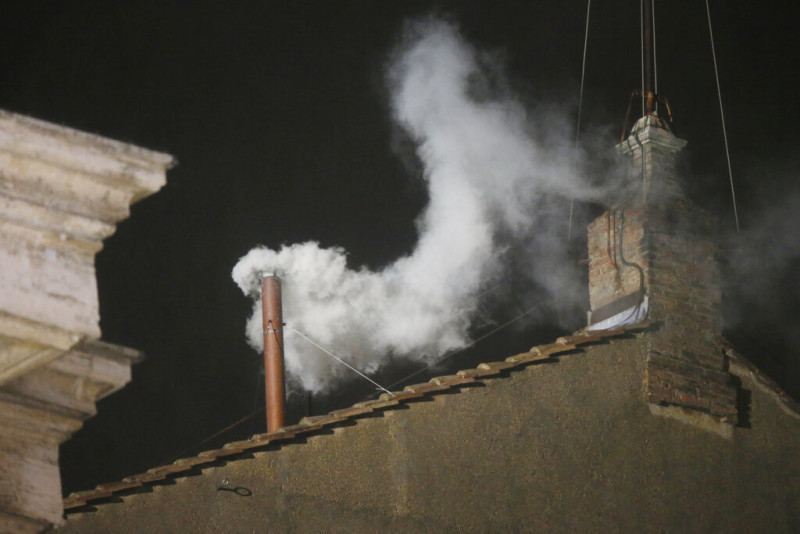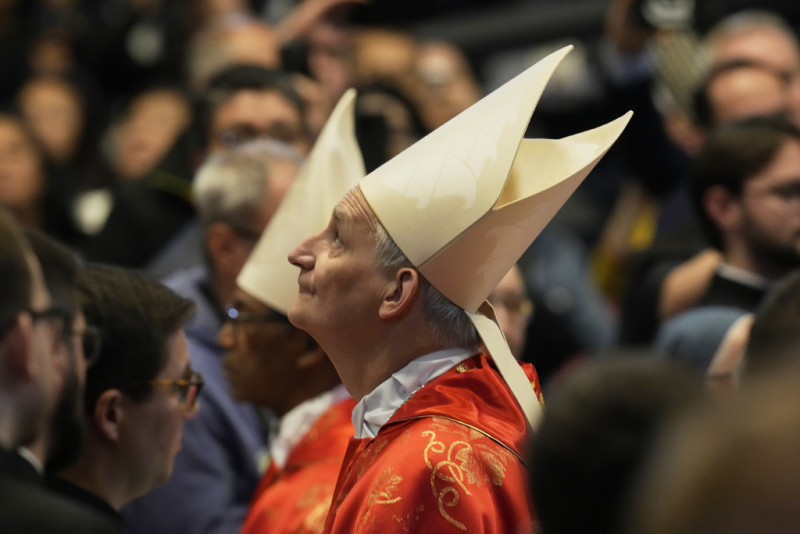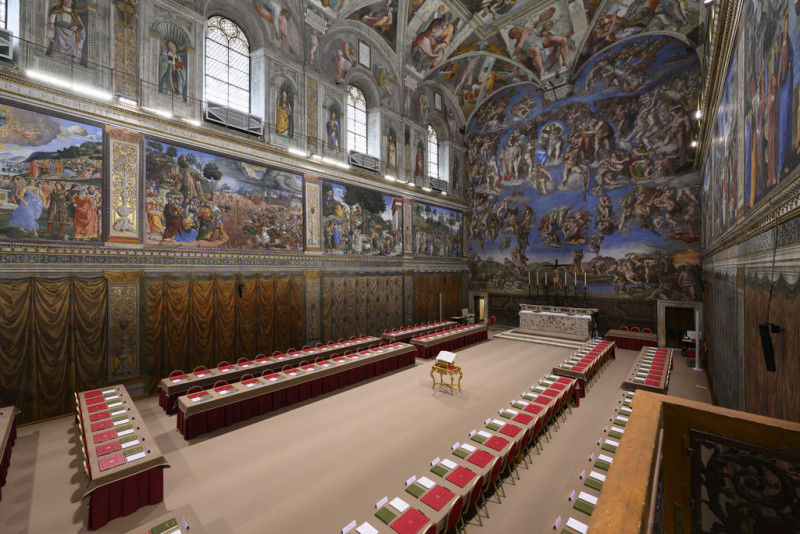It took three hours to come up with … Cardinal Missing – for tomorrow they are scheduled, if needed, two votes in the morning and two in the afternoon
Black smoke came out of conclave In the first vote for the election of the new Pope, Franciscan. This first process lasted more than expected, completing three hours of meeting through the closed doors of “Sistina Hat”.
What follows after the “discrepancy” in the election of the new Pope during this first vote? According to the Vatican, tomorrow Thursday, four votes are planned, if they are needed. The two are in the morning and the other two in the afternoon.
Votes will continue until white smoke comes out of her chimney “Sistina Hats”. In many cases it has lasted from days, to weeks, while the longest, election, historically recorded, was in the 13th century, when it took more than three years, more than 1,000 days, for the Cardinals to end up in the selection of the new Pontiff.
The process started early Wednesday. Following the “invocation to the saints of the West and the East”, the 133 Cardinal Electors entered the Sistina Hat, where the Conclavian process began. The cardinals, after sworn in the Vatican Constitution and the Gospel, asked the Holy Spirit to inspire their action. As soon as the well -known “extra omnes” formula was heard, that is, “outside everyone”, the gates were closed.
It is the conception with the largest participation of electors in which, as always, the official language is Latin. Rightly, it can be described as “the conceinence of globalization”: 53 Cardinals come from Europe, 37 from North and South America, 23 from Asia, 18 from Africa and 4 from Oceania. Two could not come to Rome for health reasons. So far, however, he has never been elected a new Pontiff in the first vote. The election of Francis’ successor is considered more likely, from tomorrow at noon and beyond, after the third vote.
Along with the ballots, in the stove of the Sistina hats and all the notes that the various electors can take, according to the principle of compulsory, absolute secrecy.
When the vote is not ending, the chimney mounted over the Sistina hats pulls black smoke, and if elected a pope, white smoke comes out.
It is noted that a function was performed this morning at St. Peter’s Basilica before the Cardinals are isolated from the outside world to elect the new Pope.
“We are here to seek the help of the Holy Spirit, begging his light and power, so that the Pope needed by the Church and humanity in such a difficult and complex phase of history.”highlighted the oldest of the cardinals, the Giovanni Batista Re, who danced the pro Eligendo Pontifice at the Basilica of St. Peter.
“We pray in favor of a modifika who can awaken the consciences and energy of society, which is characterized by great technological progress, but tends to forget God”added Cardinal Re, one of the favorites for the Pope’s position.
He advised the Cardinals Electors “To leave aside every thought of personal species and to keep in mind in their hearts, God and Jesus Christ, as well as the good of the Church and of Humanity”.
After today’s morning function, the Cardinals returned to the Vatican’s Santa Marta hostel to rest before departing around 16:30 local time for the Sistine Hat. Once the phrase “extra omnes” is spoken, the onset of isolation of the cardinals and the onset of Conclavium is also marked.
On Thursday morning the Cardinals are expected to have their breakfast from 06:30 am before the operation at 08:15 am.
Then two votes will be held throughout the day for the Pope’s election.
This is undoubtedly one of the most important concussion of the last hundred years – as anyone who is elected a new Pontiff must decide whether to continue the legacy of Pope Francis or to lead the Church and 1.4 billion Catholics around the world in a different direction.
Of a total of 252 cardinal, 133 have the right to vote as they have to be under 80 years of age to participate. Fifteen nations are first represented by indigenous cardinals.
The youngest member of the Cardinal College is Ukrainian descent, the 45 -year -old bishop of Melbourne Mikola Bitsok. The oldest is 99 -year -old Angeli Acherby.
On foot 4,000 police officers
About 4,000 police officers have been developed from this morning, on security gates and checks for those traveling to the Vatican. There are also 1,000 volunteers to help with the flow of pilgrims.
‘Different but divided’ Conclave
The 133 cardinals with the right to vote know each other and share visions for the future of the Church during daily meetings they had before the Conclave since April 28. However, how difficult it is expected to be the decision to elect a new pope was summarized in the phrase of IGNATIUS suharyo Hardjoatmodjo, the Archbishop of Jakarta, who was the last cardinal to arrive in Rome by saying to reporters: “There is a lot of confusion. “after hearing speeches of 50 cardinals. “We’ve heard a lot of voices, it’s not easy to draw conclusions.”
During the two weeks that followed the death of the Pope, the Cardinals met almost daily in the Vatican for pre-konclavi gatherings, known as general gatherings. While the Conclave in Sistina Hat is limited to cardinals who have not yet reached the age of 80, these preliminary meetings are open to 252 cardinals.
However, this is the most diverse session that has ever been done, because the deceased pope has tried to make the College of Cardinals more inclusive by choosing many from the world south, especially because Africa and Asia are the most developed areas of Catholicism. So for the first time, the green cape, Haiti, South Sudan, Tonga, Myanmar, Papua New Guinea and Rwanda will be represented. This diversity has already left its mark: it is said that the meetings before the conference have brought to the fore how different the church needs are to be depending on how they perceive them around the world.
A more inclusive conclave is ironically and more divided. Many of Francis’ progressive positions, such as the approval of gay blessing or permission to divorce the Divine Communion, have encountered resistance from some African cardinals, who tend to be more conservative and fear that such movements could undermine them.
The deceased Pope often allowed local bishops for the last reason on many of these issues to settle regional differences, but critics are concerned that this decentralization could lead to inconsistencies.
Source :Skai
With a wealth of experience honed over 4+ years in journalism, I bring a seasoned voice to the world of news. Currently, I work as a freelance writer and editor, always seeking new opportunities to tell compelling stories in the field of world news.













